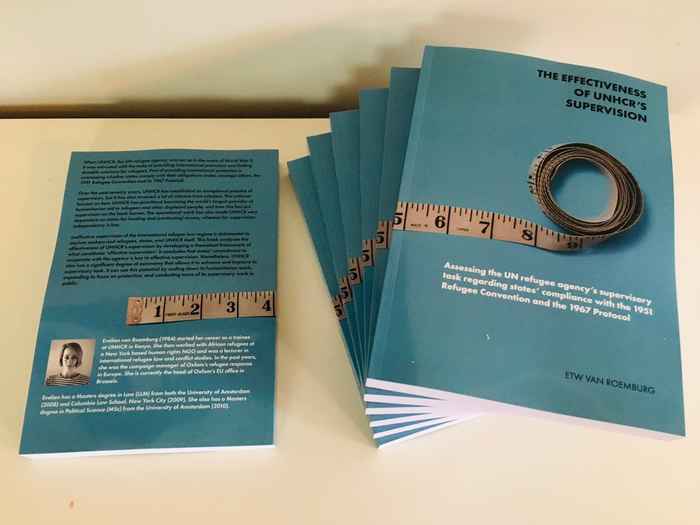PhD defence Evelien van Roemburg
- Date
- 10 February 2021
- Time
- 17:00 -18:00
- Organised by
- Evelien van Roemburg

Abstract
When UNHCR, the UN refugee agency, was set up in the wake of World War II, it was entrusted with the tasks of providing international protection and finding durable solutions for refugees. Part of providing international protection is overseeing whether states comply with their obligations under, amongst others, the 1951 Refugee Convention and its 1967 Protocol.
Over the past seventy years, UNHCR has established an exceptional practice of supervision. Nonetheless, it has also received a lot of criticism from scholars. This criticism focuses on how UNHCR has prioritized becoming the world’s largest provider of humanitarian aid to refugees and other displaced people, and how this has put supervision on the back burner. The operational work has also made UNHCR very dependent on states for funding and (continuing) access, whereas for supervision independency is key.
Ineffective supervision of the international refugee law regime is detrimental to asylum seekers and refugees, states, and UNHCR itself. This book analyzes the effectiveness of UNHCR’s supervision by developing a theoretical framework of what constitutes ‘effective supervision’. It concludes that states’ commitment to cooperate with the agency is key to effective supervision, but that UNHCR nonetheless also has a significant degree of autonomy that allows it to enhance and improve its supervisory task. It can use this potential by scaling down its humanitarian work, expanding its focus on protection, and conducting more of its supervisory work in public.
Supervisor
Professor M.Y.A. Zieck
The Candidate
Evelien van Roemburg (1984) started her career as a trainee at UNHCR in Kenya. She then worked with African refugees at a New York based human rights NGO and was a lecturer in international refugee law and conflict studies. In the past years, she was the campaign manager of Oxfam's refugee response in Europe. She is currently the head of Oxfam's EU office in Brussels.
Evelien has a Masters degree in Law (LLM) from both the University of Amsterdam (2008) and Columbia Law School, New York City (2009). She also has a Masters degree in Political Science (MSc) from the University of Amsterdam (2010).
Practicalities
The defense will take place on 10 February 2020 at 17.00 in the Aula of the University of Amsterdam. You can watch the defense live on the link here. Registration is not necessary.